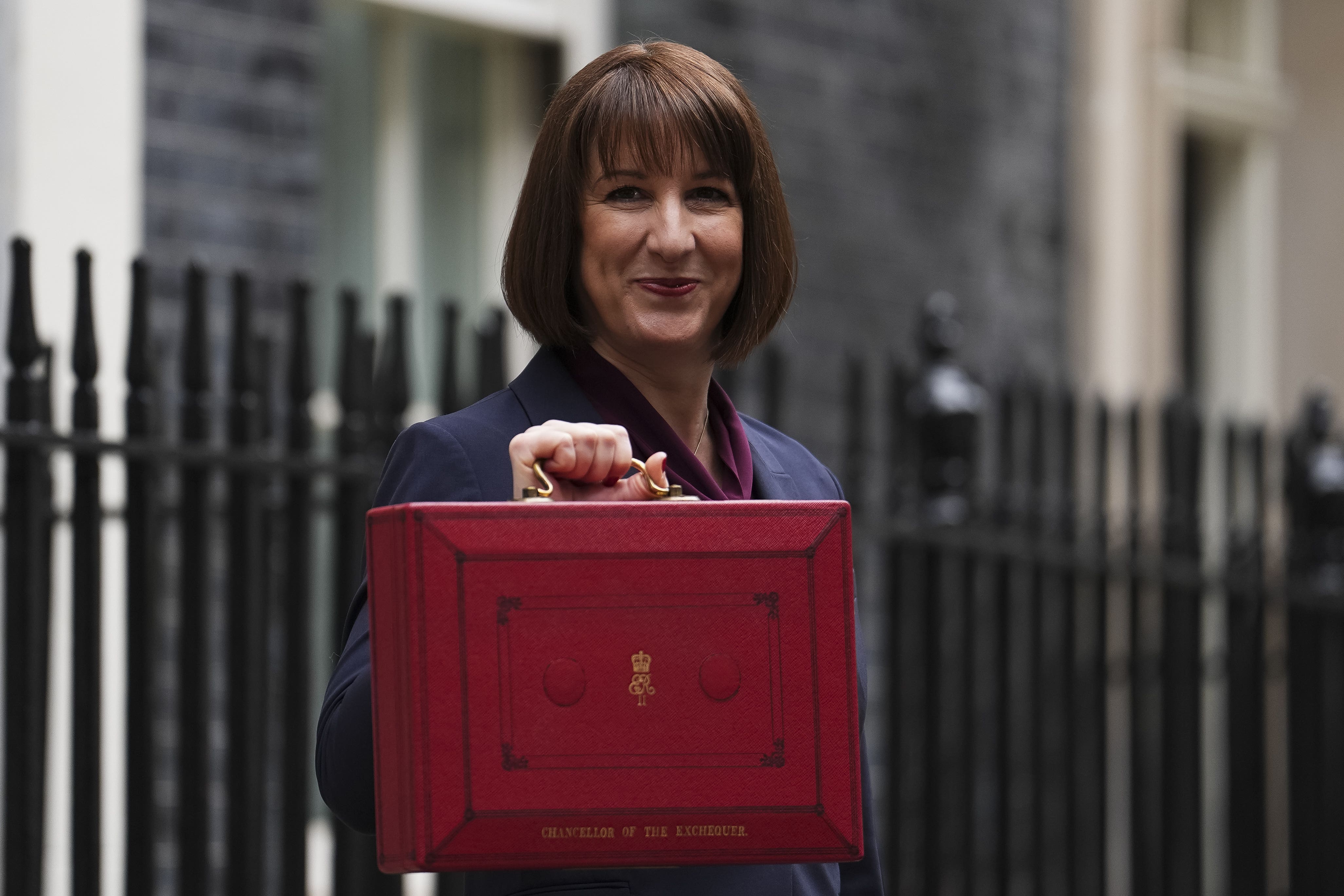Reeves gives Labour post-Budget poll boost despite £40bn tax row
Exclusive: Rachel Reeves has faced a storm of criticism after producing the biggest tax raising Budget in history but the latest weekly tracker poll has shown public support grow for Labour
Your support helps us to tell the story
From reproductive rights to climate change to Big Tech, The Independent is on the ground when the story is developing. Whether it's investigating the financials of Elon Musk's pro-Trump PAC or producing our latest documentary, 'The A Word', which shines a light on the American women fighting for reproductive rights, we know how important it is to parse out the facts from the messaging.
At such a critical moment in US history, we need reporters on the ground. Your donation allows us to keep sending journalists to speak to both sides of the story.
The Independent is trusted by Americans across the entire political spectrum. And unlike many other quality news outlets, we choose not to lock Americans out of our reporting and analysis with paywalls. We believe quality journalism should be available to everyone, paid for by those who can afford it.
Your support makes all the difference.Labour has seen its poll rating rise to its highest level in almost a month despite Rachel Reeves delivering one of the most contentious Budgets in recent history.
According to this week’s Techne UK tracker poll for The Independent Labour has gone up a point to 30 per cent, its highest since 4 October when it was on 31 per cent.
The leaderless Tories, who will announce their replacement for Rishi Sunak on Saturday, remained at 24 per cent, while Nigel Farage’s Reform UK lost a point to drop to 18 per cent. Sir Ed Davey’s Lib Dems were up one to 14 per cent and the Greens unchanged on 7 per cent.
The week has been dominated by Rachel Reeves’ Budget and seen the news agenda move off allegations of sleeze and freebies in Keir Starmer’s government.

Despite claims Labour broke multiple manifesto promises in a record breaking tax rising Budget, the party has rallied in the polls up two from their low point two weeks ago.
Techne UK chief executive Michela Morizzo suggested that Ms Reeves’ Budget wss “good politics” and has helped her party.
She said: “With the Autumn Budget statement, the Labour Party has demonstrated to have an idea of politics. Anyone can agree or not with this vision, but at least there is something to discuss about. And this is good news after a period of great stalemate.
“Voters reward the government by increasing trust in the government itself by one percentage point and the same goes for support for the Labour Party (30 per cent).
“With regards to the Budget itself, from my experience, in the short term, increased spending on the NHS and education will support public services and domestic demand growth. Minimum wage increases will boost purchasing power, which a positive impact on consumption. However, higher corporate taxes and new capital gains tax rates could dampen small and medium-sized businesses, limiting new hiring and investments.
“In the medium term, the Budget aims to create a more stable and resilient economy. New additional property taxes and inheritance taxes help shift resources towards more productive uses. However, the reduction in tax incentives for farmers may create economic strains, especially in rural regions.”
And she warned: “Increasing public debt to support these expenditures carries significant risks, because pressure on sterling could increase and reduce purchasing power in the long term. If interest rates rise, debt costs will rise, limiting the ability to support its fiscal budget. The reduction in the cash surplus from pension funds and other minor adjustments do not offset the size of the projected increase in overall debt.
“Overall considered, the Budget attempts to balance social support with new financial resources for public services and a moderate level of infrastructure interventions. But they will have to pay attention to the lack of integrated infrastructure expansion plan, particularly in regional and local transport, that may limit the economic cohesion and sustainable growth.”
The poll of 1,632 adult voters taken on Wednesday and Thursday shows that trust in government though has stayed the same at just 32 per cent.
Meanwhile, the recent trend of older voters returning to the Tories has continued with them leading in the categories over-55 and above. Reform though are now just one percentage point behind Labour among pensioners with Starmer’s party on 24 per cent and Farage’s on 23 per cent.
More worrying for Sir Keir is that more than quarter (26 per cent) of those who voted Labour in July would now not be prepared to do so again.

Join our commenting forum
Join thought-provoking conversations, follow other Independent readers and see their replies
Comments